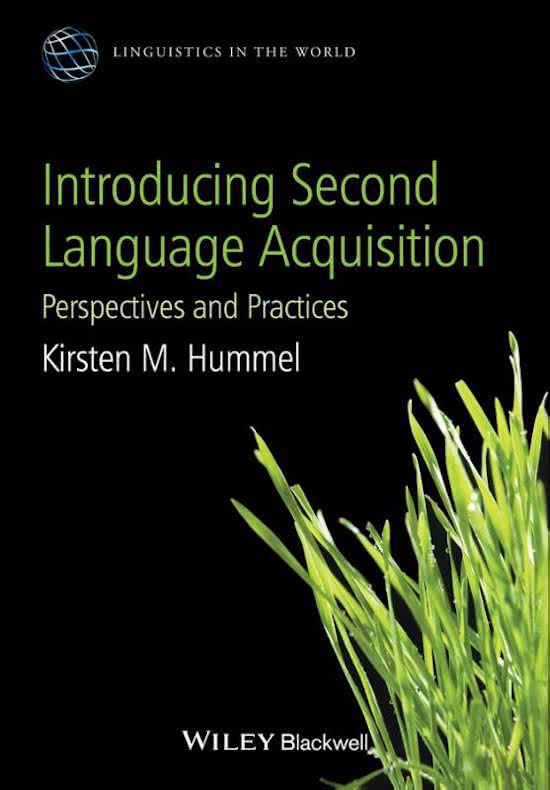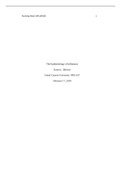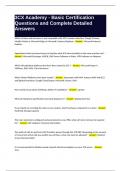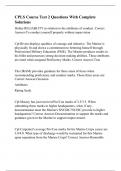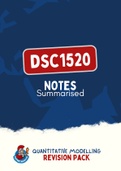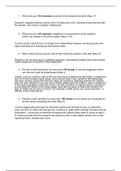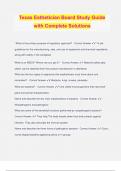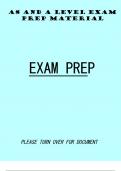Key concepts H8
Aptitude basic abilities that facilitate L2 learning, varies across
individuals
Attitude/Motivation Test Battery A test for attitudes and motivation widely used and
(AMTB) adapted to use in various L2 learning contexts
Basic interpersonal communicative Skills useful in carrying out face-to-face personal
skills (BICS) communication, as in conversations
Cognitive/academic language Skills requiring abstract language abilities (analysis,
proficiency (CALP) synthesis, etc.) useful in carrying out academic-related
tasks.
Cognitive style Predisposition to process information in a characteristic
manner.
Extrinsic motivation Motivation in which there is anticipation of a reward
(material or non-material) from outside the self.
Field dependence (FD) Type of cognitive style: learners tend to perceive a field
as a whole (holistic perception).
Field independence (FI) Type of cognitive style: learners perceive a part distinct
from its background, in a perceptual sense.
Integrative orientation A desire to know more about and identify with the
target language community.
Instrumental orientation When instrumental reasons primarily motivate the
language study.
Intelligence Hypothesized general factor underlying the ability to
adapt to the environment, often operationalized in
terms of traditional IQ tests emphasizing skills valued in
academic contexts.
Intrinsic motivation Motivation that leads to internally rewarding
consequences.
Learning strategies Specific actions, behaviors, or techniques used to
improve progress in learning and using the L2.
Learning style A person’s usual and preferred way of acquiring,
processing, and remembering new information and
skills.
Modern Language Aptitude Test Test that measures aptitude components phonetic
(MLAT) coding ability, grammatical sensitivity, and rote memory
through five different subtests.
Motivation (in language learning) Effort invested to learn an L2; Gardner (1985) defined it
as: Effort to learn a language + desire to achieve a goal +
positive attitudes toward language learning.
Orientation Overall aim, purpose, direction and/or goal of language
learning.
Phonological short-term memory (or Subsystem of working memory responsible for
phonological memory, PM) temporary maintenance of acoustic or speech-based
information.
Working memory (WM) An active system for temporarily storing and
manipulating information needed in the execution of
complex cognitive tasks, such as comprehension of
verbal material.
Aptitude basic abilities that facilitate L2 learning, varies across
individuals
Attitude/Motivation Test Battery A test for attitudes and motivation widely used and
(AMTB) adapted to use in various L2 learning contexts
Basic interpersonal communicative Skills useful in carrying out face-to-face personal
skills (BICS) communication, as in conversations
Cognitive/academic language Skills requiring abstract language abilities (analysis,
proficiency (CALP) synthesis, etc.) useful in carrying out academic-related
tasks.
Cognitive style Predisposition to process information in a characteristic
manner.
Extrinsic motivation Motivation in which there is anticipation of a reward
(material or non-material) from outside the self.
Field dependence (FD) Type of cognitive style: learners tend to perceive a field
as a whole (holistic perception).
Field independence (FI) Type of cognitive style: learners perceive a part distinct
from its background, in a perceptual sense.
Integrative orientation A desire to know more about and identify with the
target language community.
Instrumental orientation When instrumental reasons primarily motivate the
language study.
Intelligence Hypothesized general factor underlying the ability to
adapt to the environment, often operationalized in
terms of traditional IQ tests emphasizing skills valued in
academic contexts.
Intrinsic motivation Motivation that leads to internally rewarding
consequences.
Learning strategies Specific actions, behaviors, or techniques used to
improve progress in learning and using the L2.
Learning style A person’s usual and preferred way of acquiring,
processing, and remembering new information and
skills.
Modern Language Aptitude Test Test that measures aptitude components phonetic
(MLAT) coding ability, grammatical sensitivity, and rote memory
through five different subtests.
Motivation (in language learning) Effort invested to learn an L2; Gardner (1985) defined it
as: Effort to learn a language + desire to achieve a goal +
positive attitudes toward language learning.
Orientation Overall aim, purpose, direction and/or goal of language
learning.
Phonological short-term memory (or Subsystem of working memory responsible for
phonological memory, PM) temporary maintenance of acoustic or speech-based
information.
Working memory (WM) An active system for temporarily storing and
manipulating information needed in the execution of
complex cognitive tasks, such as comprehension of
verbal material.

